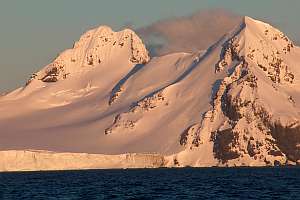 Having extra copies of certain genes helps fish live in AntarcticaI've always loved weird creatures. Bacteria that can live in boiling mudpots. Weird tubeworms huddled around deep sea hydrothermal vents. Fish that live in below freezing water.
Having extra copies of certain genes helps fish live in AntarcticaI've always loved weird creatures. Bacteria that can live in boiling mudpots. Weird tubeworms huddled around deep sea hydrothermal vents. Fish that live in below freezing water.
What I like is learning how these beasts have adapted to their incredibly harsh environment. More specifically, what changes have happened in their DNA that allow them to live where no other animal could.
In this blog I'll focus on those poor fish living in the waters off Antarctica. These waters are icy cold and the fish aren't warm blooded. Which means their body temperature is the same as the water around them.
Most biological processes do terribly under these conditions. Proteins don't fold right, enzymes work incredibly slowly, fats glob up. It is astonishing that these fish survive at all.
Scientists figured out back in the 70's that these fish evolved a special antifreeze protein to keep their blood from freezing. Since then they've done other experiments that show other adaptations to the cold too.
